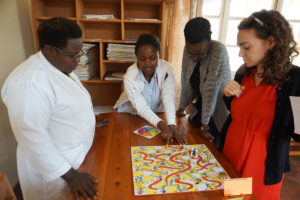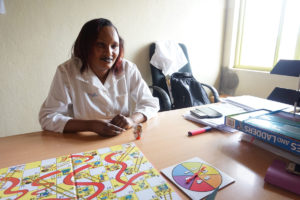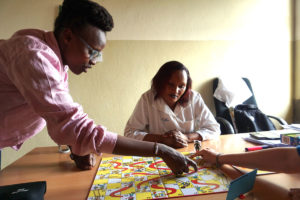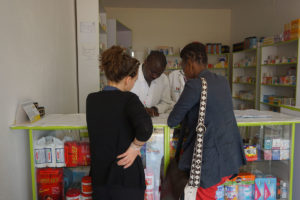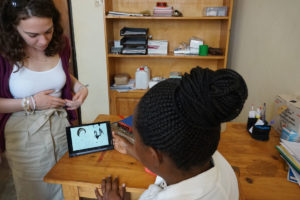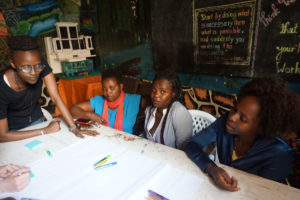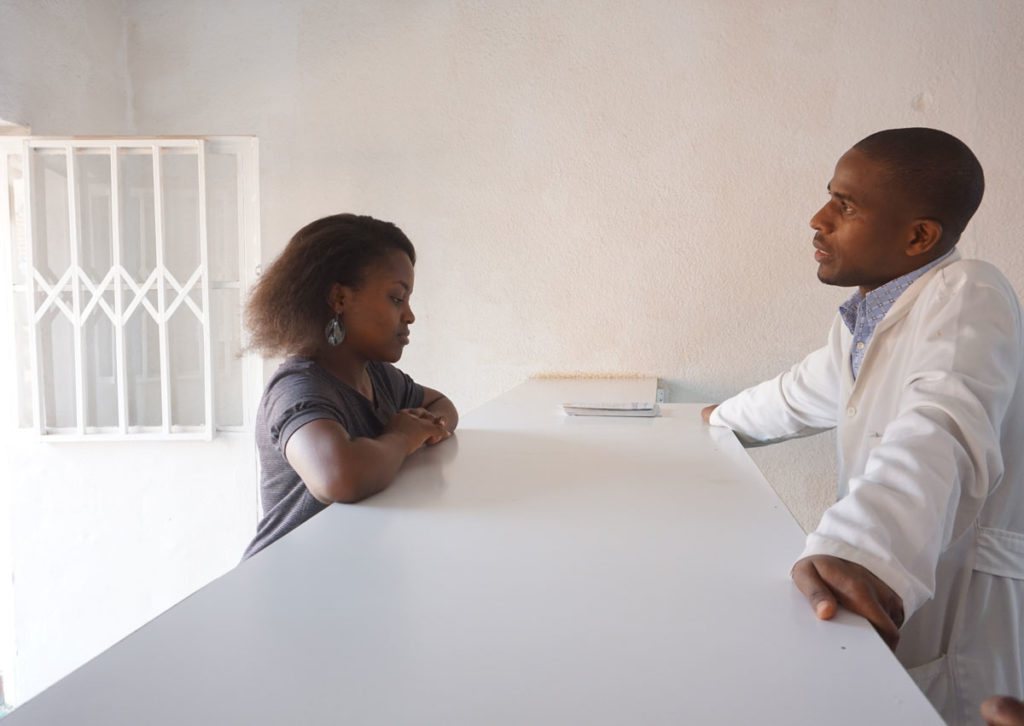As an over-packer in recovery, I have brought many unnecessary items with me on trips around the world. But as a seasoned human-centered design professional I knew that my suitcase to Rwanda needed to have not just sharpies and post-its to document quotes and takeaways during the trip, but also the children’s board game, Chutes and Ladders.
Since 2016, YTH and YLabs have been working in Rwanda using human-centered design to create CyberRwanda, an integrated set of digital and print resources for youth and health care providers to address youth unemployment and unplanned pregnancy. CyberRwanda aims to move the needle on these issues by making family planning a key part of planning for one’s future and career aspirations, while also creating demand for contraceptive services among youth. Simultaneously, the project aims to offer health care providers knowledge and skills to support them in offering youth friendly services. With the support from The David and Lucile Packard Foundation, we have already finalized the prototype for the youth-facing materials and with the support of The United States Agency for International Development (USAID), we are currently designing and prototyping the provider tools. As we build out both products we aim to launch the full program in Rwanda by the end of 2018.
As part of the design process for the provider tools, in February, my colleague from YLabs and I spent two weeks in Rwanda prototyping tools for health care providers with our Rwandan colleagues along with our local partner organization, SFH Rwanda. Our prototypes aimed to foster empathy among providers for young people’s experiences within the healthcare system, and to explore what consequences providers thought their actions had on the health outcomes of youth.
To test this, we designed our very own game using the game board and rules of Chutes and Ladders. During prototype sessions, after getting to know the provider a bit and learning about his or her experiences, I would simply ask, “Will you play a game with me?” This question always resulted in a big grin (providers like to have fun, too!), and out came the board game.
To start off the game, we read a scenario to the provider about a 17 year old girl, Happy, who had arrived in the clinic. “Can you provide Happy with the best care possible?” we asked the provider, and then place a card at the 100th square that read “Youth Friendly Care,” so providers remembered what they were playing for. Each time a provider landed at a square with a ladder, we read a scenario of something the provider did well to support Happy reaching her goal, such as validating or empowering Happy’s experiences, giving her the contraceptive method of her choice, or taking the time to answer Happy’s questions. When a provider landed on a chute, we read a scenario of something the provider did to delay Happy from achieving her goal, such as telling Happy she should be abstinent instead of using contraception, or discussing Happy’s personal information in the waiting room with her in front of everyone. In between scenarios, we debriefed the stories with the providers to understand how realistic they were and to assess the provider’s reaction.
Providers loved this game. The visual representation of the positive or negative impact of the behavior deeply resonated with them. And they were surprised by how some seemingly small actions could impact youth so deeply.
Prototyping with Chutes and Ladders is a reminder that even simple and rough prototypes can provide a wealth of information and offer significant insights into programmatic design. While carrying Chutes and Ladders across the world may seem silly (and require a larger suitcase), it’s worth the reminder that small investments can have a big payout.
We’re in the process of translating the lessons from our Chutes and Ladders prototyping game and other exciting prototypes into more refined solutions that will support providers in offering more comprehensive youth-friendly care. Follow along @ythorg and @ylabsglobal for updates from the field and learnings from our next trip in the spring.
Previous Post
Revealed! Sessions & Speakers